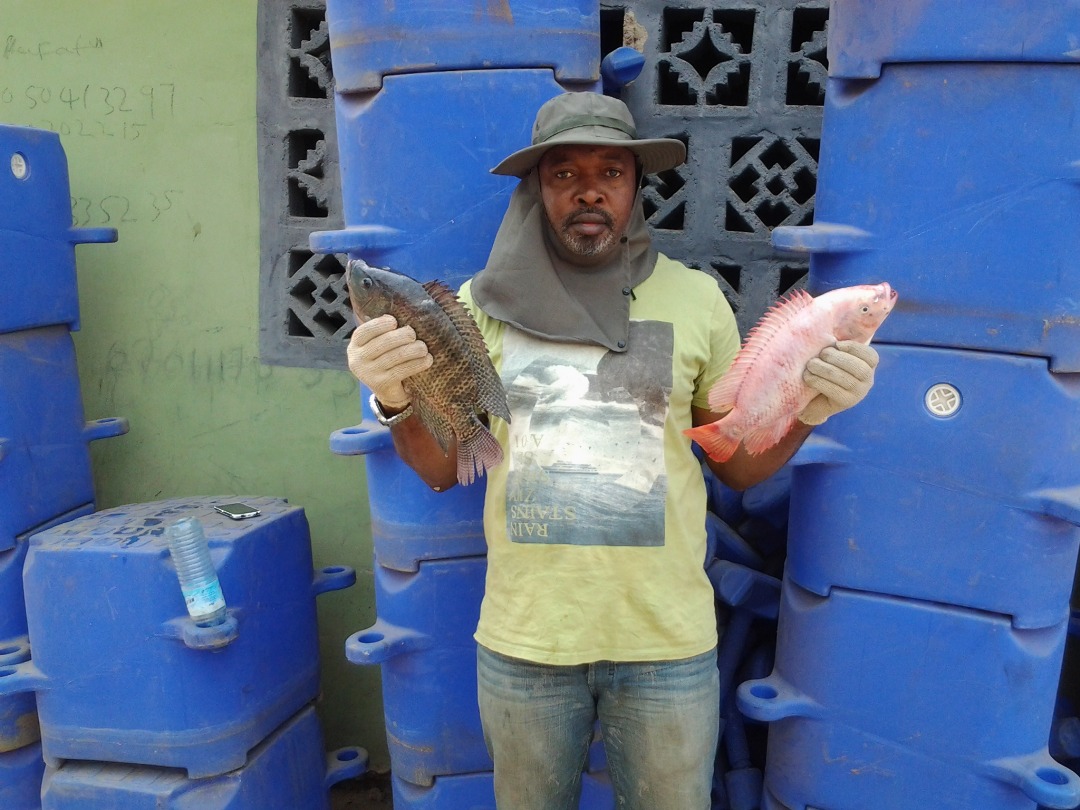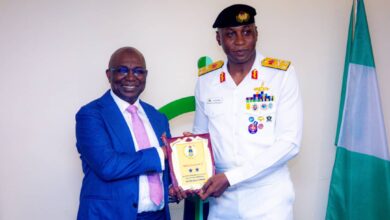
Mr. Nurudeen Tiamiyu , National Vice President for Tilapia Agriculture Development Association of Nigeria has said Nigeria loses about N1.8 trillion on fish importation every year.
During an interview with JournalNG, he noted that the Ministry of Marine and Blue Economy which was created to ensure that Nigeria’s marine resources are harnessed responsibly and enrich the lives citizens while preserving the natural beauty of the coastal ecosystems is not making significant impact on fishing .
He said that despite being a country richly endowed with water bodies and a coastline stretching over 850 kilometers from Lagos to Calabar , the fishing and aquaculture sector remains alarmingly underdeveloped.
Tiamiyu, who runs Latia Global Investment Limited, a fish farming operation in Lagos, said the hopes raised by the establishment of the new ministry have largely been dashed. Speaking candidly about the state of affairs, he lamented the lack of strategic support and meaningful engagement from the government, particularly through the Department of Fisheries.
He pointed out that while the Ministry boasts of influential players like the Nigerian Maritime Administration and Safety Agency (NIMASA) and the Nigerian Ports Authority (NPA), the aquaculture sector is often overshadowed by the focus on revenue generation rather than wealth creation. This, he said, is a missed opportunity to harness the immense potential of Nigeria’s marine resources for food security, job creation, and economic diversification.
He also revealed that Nigeria currently imports over $1.2 billion worth of frozen fish annually amounting to about 1.2 million metric tons to bridge the gap between domestic production and national demand.The estimation of this amounts to 4 million metric tons. Tiamiyu believes this figure reflects not only a critical loss of foreign exchange but also a massive export of job opportunities.
He maintains that with strategic funding, such as a $1 billion investment at interest rates between 0 to 2 percent, Nigeria could reduce its fish importation by at least 50 percent in just four years. However, the lack of financing mechanisms and the government’s reluctance to tap into global development funds such as those from the World Bank continues to stifle progress.
The fish farmer stressed that the issue is not just about funding, but also about poor accountability and corruption on donor-funded projects in Nigeria that collapsed due to mismanagement, falsified reports, and lack of post-impact assessment .As a result, he said Nigeria has been excluded from subsequent phases of certain international grant programs, further deepening the sector’s woes.
One striking example he gave is the emerging global seaweed industry, valued at $20 billion and projected to hit $32 billion by 2032.He noted that although Nigeria possesses the right marine environment to cultivate seaweed, no commercial activity has taken off because grants aimed at developing the industry are being misdirected, often to academics and consultants with no production track record.
Comparing Nigeria with other African countries, he said many nations with far fewer natural water resources have ministries solely dedicated to fisheries and aquaculture but in contrast, Nigeria still fails to prioritize the sector. He praised isolated efforts, such as the Lagos State government’s APPEALS project funded by the World Bank, but noted that this remains too limited in scope and impact.
In terms of export, Tiamiyu said Nigeria is nowhere near ready for farmed fish like tilapia or catfish to be export-competitive as he explained that the production cost per kilogram must be below $1. In Nigeria he said current costs exceed that threshold, making exports unviable and only high-value products like shrimp may be worth considering for international markets at this stage.
He also emphasised the structural disincentives for investment in aquaculture. With treasury bills yielding up to 18-20 percent annually, most investors find it safer and more profitable to invest in government securities than in fish farming, which is fraught with infrastructure deficits and operational risks , according to him.
Tiamiyu offered a sound advice for newcomers interested in joining the aquaculture value chain. He recommended that rather than starting with expensive fish farms, they should focus on logistics, delivery systems, and marketing ,that by building a customer base and forging partnerships with existing farmers, new entrants can create value without the heavy capital investment and risks associated with farming.












Solid article! Understanding variance is key to long-term poker success. Secure platforms like phlove login online casino prioritize a safe experience, crucial for focused play & legit withdrawals. KYC is a smart move for any site!
m5gu2x